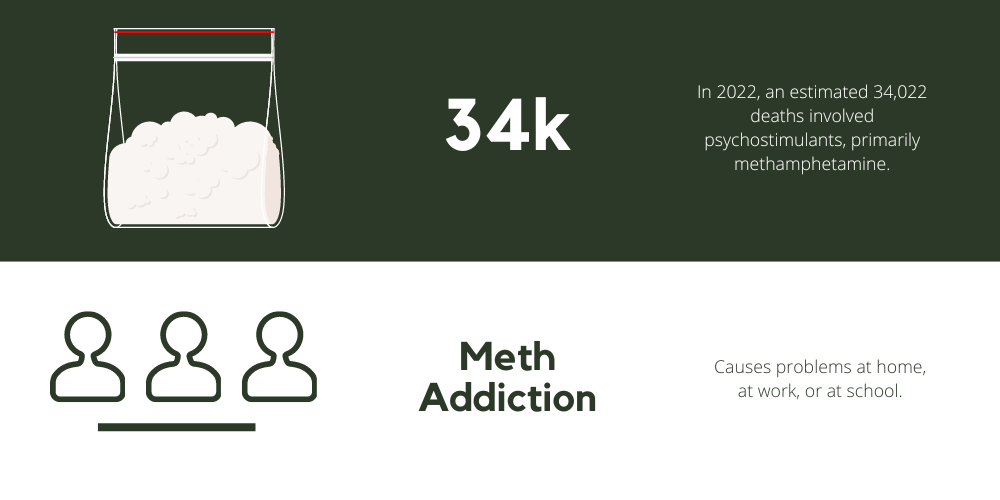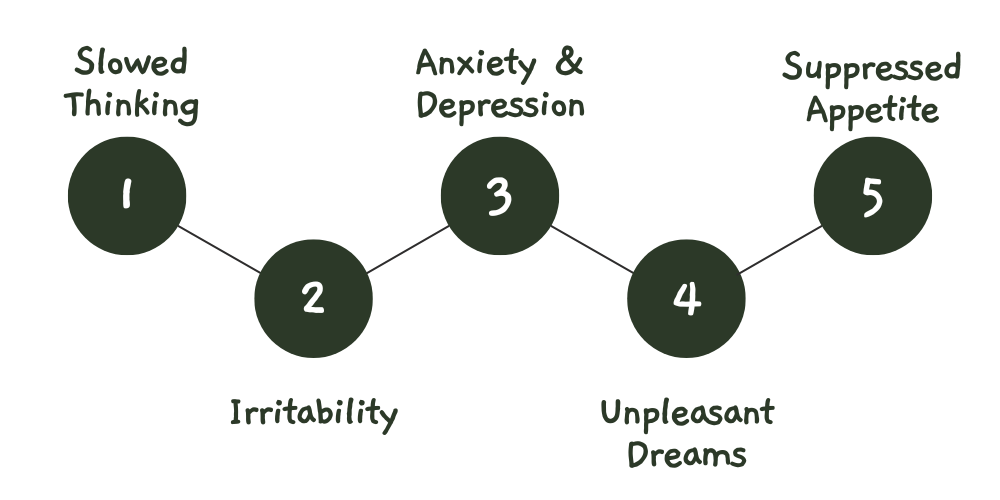
Medically Supervised Meth Detox mission Viejo
Methamphetamine is a powerful stimulant that can cause severe changes to the brain, body, and behavior. In Orange County, meth use remains a major public health concern. The California Department of Public Health reports that methamphetamine is the most frequently cited drug in drug-related deaths in the region, with rates steadily rising over the past decade. Meth detox in Mission Viejo is an important first step for patients seeking sobriety and improved mental health.
At Sullivan Recovery, our meth detox program addresses the physical and mental effects of methamphetamine withdrawal. We use medical detox methods to manage symptoms like fatigue, anxiety, insomnia, mood swings, and depression. Every patient is treated with expert care to help restore health, motivation, and insight during this critical phase of recovery.
Methamphetamine, also called meth, ice, or amphetamine, impacts the central nervous system and floods the brain with dopamine. This creates intense euphoria but leads to damage in areas controlling memory, attention, and mood. In Orange County, meth is often linked with other substance abuse issues, including opioid, fentanyl, and alcohol misuse.
According to local health data, opioid overdoses claimed more than 500 lives in Orange County in a single year, and many of those cases involved methamphetamine as a secondary drug. Meth use increases risks of paranoia, psychosis, suicidal ideation, violence, and long-term mental health disorders like bipolar disorder and attention deficit hyperactivity disorder.
Medical detox is the safest way to remove meth and other drugs from the body. During methamphetamine detox, symptoms like nausea, fever, anxiety, paranoia, and low energy can be severe. Without professional supervision, patients may relapse to avoid discomfort or dangerous cravings.
Our detox program uses medical management, nutrition support, and evidence-based therapies to stabilize patients. Interventions may include medication for anxiety or depression, sleep regulation, and psychiatric care. This approach reduces the risk of complications like delirium, psychosis, or other health issues tied to drug toxicity.

Sullivan Recovery offers outpatient meth detox for patients who can safely manage withdrawal with structured medical oversight while living at home. Outpatient programs allow patients to continue daily responsibilities while attending regular therapy, psychiatry sessions, and medication management appointments.
For patients with severe withdrawal symptoms, co-occurring alcohol or opioid use, or dual diagnosis mental health conditions, residential inpatient or PHP (partial hospitalization program) care may be recommended. Our PHP program is a cornerstone option for individuals needing structured, daily medical and therapeutic support without full residential care.
Effective meth rehab goes beyond drug detoxification. We integrate evidence-based treatments to address the mental and behavioral roots of addiction.
These therapies improve sleep patterns, attention span, and emotional stability, which are often disrupted by methamphetamine use.
Meth detox often involves a range of physical and mental symptoms, including:
Our team uses targeted strategies to ease discomfort, manage cravings, and prevent dangerous outcomes like delirium tremens, severe psychosis, or self-harm.

Many patients entering meth detox also struggle with other substance abuse problems, such as alcohol or benzodiazepine misuse, or mental health disorders like bipolar disorder, ADHD, or anxiety. This is called dual diagnosis.
At Sullivan Recovery, our meth detox program incorporates mental health treatment alongside physical detoxification. This includes psychiatry, therapy, and medication-assisted treatment when appropriate. For example, naltrexone or buprenorphine may be used for patients also dealing with opioid dependence.
Detox is the first step in meth rehab, but it is not a complete solution. After detox, patients transition into continued treatment options, which may include outpatient care, PHP, or residential inpatient programs. These next steps focus on building coping skills, repairing relationships affected by codependency, and preventing relapse.
Long-term recovery often requires addressing the root causes of addiction, including past trauma, mental health conditions, and environmental stressors. Our team helps patients develop healthy routines, improve sleep, rebuild nutrition habits, and engage in supportive activities that promote gratitude, insight, and lasting sobriety.
Attempting meth detox without medical supervision can be dangerous. Meth withdrawal symptoms may cause extreme depression, paranoia, or suicidal thoughts. The stress placed on the brain and body can worsen existing health issues, trigger severe mood instability, or lead to relapse.
Self-detox methods can also cause toxicity if patients attempt to replace meth with other substances like alcohol, opioids, or depressants. This can result in overdose, disease complications, or long-term damage to the central nervous system.
These numbers highlight the urgent need for accessible meth detox and treatment centers in the region.
Sullivan Recovery is a Mission Viejo treatment center specializing in outpatient drug and alcohol programs, medical detox, and dual diagnosis care. Our meth detox services combine expert medical oversight with proven therapies to support both the mind and body.
We work with most major health insurance plans to make treatment accessible. Our team includes nursing professionals, psychiatrists, therapists, and addiction specialists who monitor dose adjustments, medication safety, and overall patient health during detox.
Withdrawal from methamphetamine affects every system in the body. We use targeted care plans to stabilize patients, which may include:
This comprehensive approach reduces discomfort, improves health, and prepares patients for ongoing recovery.
We accept most health insurance plans, including policies covering detox, outpatient care, and PHP programs. Insurance can significantly reduce out-of-pocket costs for drug detox and meth rehab services. Our admissions team provides clear information and works with patients to verify coverage quickly.
Completing meth detox is a major achievement and a key point in recovery. The next step is enrolling in continued care—either through outpatient treatment, a PHP program, or residential care depending on patient needs.
Ongoing therapy helps maintain sobriety, rebuild healthy behavior patterns, and strengthen mental health. Our programs provide continued education on addiction, coping strategies, and relapse prevention, ensuring patients have the tools to thrive long-term.
Choosing the right treatment center is a critical point in the recovery process. Sullivan Recovery offers a combination of medical expertise, personalized care, and proven treatment methods in a safe outpatient setting. We accept most major health insurance plans to make treatment more accessible for Mission Viejo residents.
Our expert team includes addiction specialists, psychiatrists, nurses, and therapists who work together to address every aspect of recovery. From medical detox to mental health treatment, we help patients regain their health, rebuild relationships, and restore their quality of life.
The length of meth detox varies depending on the patient’s health, duration of use, and whether other substances are involved. Most withdrawal symptoms peak within the first week, but mental health effects like low mood or cravings can last several weeks. Our team develops individualized timelines to ensure each patient completes detox safely and effectively.
Yes. Meth detox allows the brain to begin repairing dopamine pathways damaged by long-term stimulant use. While full cognitive recovery can take months, patients often notice gradual improvements in memory, mood, attention, and decision-making within weeks of completing detox.
Quitting meth without professional support can be risky. Severe depression, anxiety, or suicidal thoughts are common during withdrawal, and cravings can quickly lead to relapse. Medical detox provides supervision, medications, and emotional support to make the process safer and more manageable.
For outpatient detox, bring a list of all medications you currently take, your health insurance card, and any medical records related to substance use or mental health. Comfortable clothing, a reusable water bottle, and a notebook for tracking progress can also be helpful during appointments.
We are available around the clock to assist you, every day of the year.
© 2024 Sullivan Recovery. All rights reserved.